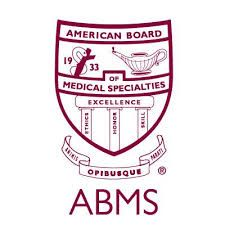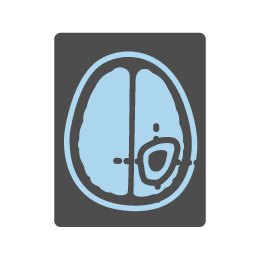
Maximilian Diehn MD
Thoracic Cancer
Associate Professor, Radiation Oncology, Stanford University Medical Center
Join to View Full Profile
875 Blake Wilbur DrDept of Radiation Oncology Mc5847Stanford, CA 94305
Phone+1 650-723-6171
Dr. Diehn is on Doximity
As a Doximity member you'll join over two million verified healthcare professionals in a private, secure network.
- Gain access to free telehealth tools, such as our “call shielding” and one-way patient texting.
- Connect with colleagues in the same hospital or clinic.
- Read the latest clinical news, personalized to your specialty.
Education & Training
 Stanford Health Care-Sponsored Stanford UniversityResidency, Radiation Oncology, 2005 - 2009
Stanford Health Care-Sponsored Stanford UniversityResidency, Radiation Oncology, 2005 - 2009 Stanford Health Care-Sponsored Stanford UniversityInternship, Internal Medicine, 2004 - 2005
Stanford Health Care-Sponsored Stanford UniversityInternship, Internal Medicine, 2004 - 2005 Stanford University School of MedicineClass of 2004
Stanford University School of MedicineClass of 2004
Certifications & Licensure
 CA State Medical License 2005 - 2027
CA State Medical License 2005 - 2027 American Board of Radiology Radiation Oncology
American Board of Radiology Radiation Oncology
Awards, Honors, & Recognition
- CMS Meaningful Use Stage 1 Certification EpicCare Ambulatory EMR, Epic Systems Corporation, 2011-2013
Clinical Trials
- Individualized Lung Tumor Stereotactic Ablative Radiotherapy (iSABR) Start of enrollment: 2011 Oct 21
- Molecular and Cellular Analysis of Breast Cancer
- Personalized Escalation of Consolidation Treatment Following Chemoradiotherapy and Immunotherapy in Stage III NSCLC in Stage III NSCLC Start of enrollment: 2021 Aug 25
Publications & Presentations
PubMed
- Distinct cell state ecosystems for nodular lymphocyte-predominant Hodgkin lymphoma.Ajay Subramanian, Shengqin Su, Jamie Flerlage, Stefan Alig, Sheren Younes
Nature Communications. 2025-09-26 - Clinical factors and molecular co-alterations impact outcomes in patients receiving first-line osimertinib for EGFR-mutated non-small cell lung cancer.Fangdi Sun, Mandeep K Banwait, Surbhi Singhal, Amanda Herrmann, Zofia Piotrowska
Lung Cancer. 2025-09-07 - 1 citationsNeuroendocrine cells orchestrate regeneration through Desert hedgehog signaling.William Kong, Wan-Jin Lu, Megha Dubey, Rahul K Suryawanshi, Sivakamasundari Vijayakumar
Cell. 2025-09-04
Abstracts/Posters
- Circulating DNA for Molecular Response Prediction, Characterization of Resistance Mechanisms and Quantification of CAR T-Cells during Axicabtagene Ciloleucel TherapyMaximilian Diehn, 61st Annual American Society of Hematology Meeting, Orlando, FL, 12/9/2019
- Interim Circulating Tumor DNA As a Prognostic Biomarker in the Setting of Interim PET-Based Adaptive Therapy for DLBCLMaximilian Diehn, 61st Annual American Society of Hematology Meeting, Orlando, FL, 12/7/2019
- An Atlas of Clinically-Distinct Tumor Cellular Ecosystems in Diffuse Large B Cell LymphomaMaximilian Diehn, 61st Annual American Society of Hematology Meeting, Orlando, FL, 12/9/2019
- Join now to see all
Authored Content
- Multi-Cancer Early Detection – Promise or Reality?September 2024
Press Mentions
 Early Cancer Detection: The Elusive Multi-Cancer AssayJune 1st, 2025
Early Cancer Detection: The Elusive Multi-Cancer AssayJune 1st, 2025 HMN 2025: How Cell-Free RNA Blood Check Identifies Early-Stage Cancers, Screens Therapy Resistance and Detects Tissue HarmApril 27th, 2025
HMN 2025: How Cell-Free RNA Blood Check Identifies Early-Stage Cancers, Screens Therapy Resistance and Detects Tissue HarmApril 27th, 2025 Liquid Biopsy Uses mRNA to Diagnose Cancer, Treatment Resistance, Tissue DamageApril 23rd, 2025
Liquid Biopsy Uses mRNA to Diagnose Cancer, Treatment Resistance, Tissue DamageApril 23rd, 2025- Join now to see all
Grant Support
- Noninvasive imaging and blood biomarkers for personalized lung cancer immunotherapySTANFORD UNIVERSITY2024–2029
- Molecular Strategies to Widen the Therapeutic Index of RadiotherapySTANFORD UNIVERSITY2022–2027
- Molecular Strategies to Widen the Therapeutic Index of RadiotherapySTANFORD UNIVERSITY2022–2027
- Circulating Genomic Determinants of Treatment Failure in Hodgkin LymphomaSTANFORD UNIVERSITY2021–2026
- Analysis of urine tumor nucleic acids for detection and personalized surveillance of bladder cancerSTANFORD UNIVERSITY2020–2025
- Molecularly-based outcome and toxicity prediction after radiotherapy for lung cancerSTANFORD UNIVERSITY2020–2025
- Imaging and circulating DNA markers to assess early response and predict treatment failure patterns in lung cancerSTANFORD UNIVERSITY2019–2024
Viewing the full profile is available to verified healthcare professionals only.
Find your profile and take control of your online presence:









